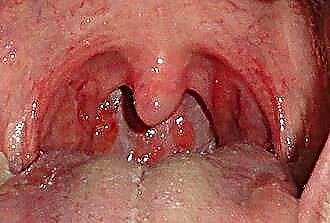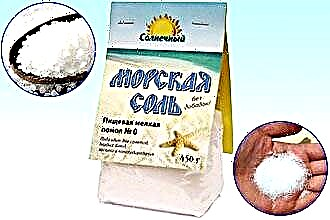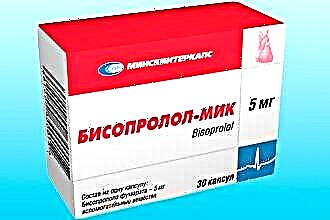Diuretics tend to remove excess fluid from the body. This is necessary for various diseases, for example, with hypertension. Such properties are possessed by both synthetic preparations and natural phyto-substances. The list of diuretic herbs with high blood pressure is quite large, but they must be used in the same way as medicines, as prescribed by a doctor.

Herbs for hypertension
Medicinal herbs with increased pressure have not only a diuretic effect, because medicines of natural origin always act in a complex manner. They are effective for other diseases of the heart and blood vessels. As for the latter, natural ingredients are able to strengthen the vascular walls, adding elasticity and firmness to them. Therefore, today, medicinal herbs are often prescribed as part of conservative therapy.
This can be explained by their mild action and the fact that they do not cause addiction, as with some synthetic drugs. With hypertension, herbal preparations can be prescribed, which include remedies for tachycardia and other problems, they act in a complex way on the cardiovascular and nervous systems.
When taking diuretic herbs, the absorption of excess fluid is reduced, and an effect on the renal tubules occurs to reduce the absorption of salts. Therefore, the secretion of fluid increases significantly, as does the amount of urine. An important factor is that the liquid does not stay in the body for a long time.
Diuretic herbs for hypertension should be taken, like medicines, depending on which indicator is increased. If a persistent increase in systolic pressure is recorded, herbs are selected that have a sedative effect, reduce cardiac output and frequency of contractions. And already with a high diastolic index, funds are needed that have a strong diuretic effect, and also contribute to vasodilation.
If both indicators are greatly overestimated, then a combined collection of herbs is prescribed, which cannot be taken for more than 3 months. It is changed periodically, and this should be done by a doctor.
Diuretics for hypertension and heart disease are very important, since an increase in blood volume negatively affects the myocardium. The heart muscle needs to pump more blood, hypertrophy occurs. Also, increased stress contributes to the occurrence of a heart attack or stroke.
It should be noted that many herbs, in addition to the diuretic effect, also have a disinfectant effect. This helps to restore normal microflora in the genitourinary system. Therefore, the likelihood of inflammation is reduced.
With heart failure and other pathologies, medicinal plants are needed that remove excess fluid and have a beneficial effect on the condition of the vascular walls. These herbs include:
- shepherd's bag;
- dryweed;
- arnica;
- mountain ash;
- barberry (inflorescences);
- Astragalus leaves.
There are separately herbs that are used with increased systolic pressure, that is, which have a sedative effect. They are also vasodilators. Traditional medicine refers to them:
- knotweed;
- Dill;
- motherwort;
 birch leaves;
birch leaves;- lingonberries;
- peppermint;
- white mistletoe;
- juniper;
- oregano;
- calendula;
- thyme;
- nettle;
- lemon balm;
- milk thistle;
- sage.
Additionally, the list of diuretic herbs for high blood pressure can be supplemented with other plants. It should be noted the action of calamus, valerian, cornflower, heather, carnation, elecampane, smoke, black elderberry, coltsfoot.
The positive quality of these medicinal plants is that they have much fewer contraindications than synthetic drugs. Their main advantage is harmlessness. They do not have a negative effect on other systems and organs. With correct use and dosage, infusions and decoctions do not cause side effects and all contraindications are minimized.
Contraindications
Contraindications to taking various diuretics prepared from medicinal plants are:
- Allergic reaction. Quite often, herbs cause allergies, therefore, if a person knows about his intolerance to any plant, this should be taken into account. Even if you are allergic to pollen, then you need to take tinctures and decoctions with inflorescences very carefully.
- Children under 6 years of age are a complete contraindication to taking diuretics.
- Urolithiasis is a conditional contraindication, since in this case it is necessary to take diuretics only as directed by a doctor.
- With prostate adenoma, diuretic herbs are prohibited, since there may be stagnation in the bladder.
- If a lack of potassium in the body is diagnosed.

Long-term use of diuretic-type charges can lead to rather serious consequences, since not only excess fluid is excreted from the body, but also various useful microelements. First of all, these are sodium, potassium and magnesium. Therefore, together with diuretics, it is recommended to eat wholesome food, saturated with vitamins and minerals, to be tested regularly.
Herbal preparations
Multicomponent herbal preparations can be collected on their own or purchased at the pharmacy ready-made, collected in the correct proportions.
One of the most popular fees, which is used for hypertension, add:
- 1 part white mistletoe.
- 2 parts lemon balm, oregano, calendula, horsetail, adonis, St. John's wort, bearberry, walnut (partition).
- 3 parts mint, inflorescences of barberry, valerian, dried crushed milk.
Also, the collection of a diuretic type may include:
- yarrow;
- raspberries;
- Melissa;
- birch leaves;
- cowberry;
- sweet clover flowers;
- chestnut fruit;
- hawthorn;
- motherwort;
- cottonweed;
- horsetail.
This herbal collection is mixed, having previously chopped up all the herbs. Add 2 g of each ingredient.
To make a diuretic tea, you need dandelion leaves. At the same time, both fresh and dry leaves are effective. You need to steam them for a few minutes, and then you can drink. This tea should be consumed several times a day. By the same principle, tea is prepared from bearberry leaves. But the difference between bearberry and dandelion is that teas made from the first herb cannot be drunk for a long time. The course should be about 2 weeks, since bearberry is a toxic plant.
Thyme tea is an effective diuretic. It is important that it is prepared from the plant exactly during its flowering period. In this case, the tea will also have anesthetic, sedative and immunostimulating effects. It is made from 15 g of thyme and 1 liter of water. The herb should be steeped in boiling water and drunk 1 glass before meals. It is not recommended to drink thyme tea for people with stomach diseases, women during pregnancy.
To prepare a decoction of diuretic horsetail, you need to take dry horsetail (4 teaspoons) and pour 500 ml of boiling water. All the resulting broth should be drunk in a day, dividing it into parts.
 Linden tea is tasty and healthy. A diuretic is prepared from 2 teaspoons of dry raw materials and 250 ml of hot water. You need to wait for the tea to brew and you can drink it, only warm. The drink is rich in vitamin C, carotene, saponins and essential oils.
Linden tea is tasty and healthy. A diuretic is prepared from 2 teaspoons of dry raw materials and 250 ml of hot water. You need to wait for the tea to brew and you can drink it, only warm. The drink is rich in vitamin C, carotene, saponins and essential oils.
Lemon balm decoction has a diuretic and sedative effect. To prepare it, you need to boil 10 g of lemon balm in a chopped form in 250 ml of water. It should be taken 5 ml 4 times a day.But such a decoction is strictly forbidden to use for hypotonic patients and people who work with complex mechanisms, since it can provoke drowsiness and lethargy.
At the same time, in order to prepare a medicine for high blood pressure based on viburnum, you can use fruits, leaves, branches and even bark. A diuretic fruit drink is prepared from the berries, which is quite effective at high pressure. To do this, take 1 kg of viburnum berries and squeeze the juice out of them. After that, take the pulp that remains, pour 200 ml of water and put on fire. Boil all this for about 10 minutes, and then strain the broth and mix it with the juice obtained earlier. Such a remedy should be taken before meals for 1/3 cup. It will also be effective to take pure viburnum juice. This should be done 3 times a day, 50 ml at a time. Be sure to drink it before meals, half an hour before meals.
A decoction is prepared from the viburnum bark in water. Proportions: 20 g of bark and 500 ml of boiling water. Boil it all for 30 minutes. After the broth has cooled, you need to drink it half a glass 3 times a day. Kalina also has contraindications. It is not recommended for people who have gout and have a tendency to increase blood clotting.
 Milk thistle is a herb that has a mild effect, not long lasting. That is, the diuretic effect quickly passes, so it is recommended to use it for people who have conditional contraindications to diuretics. It is because the effect is not long-lasting that milk thistle remedies can be taken in small doses every 1-1.5 hours. Besides the diuretic effect, milk thistle acts as an antioxidant.
Milk thistle is a herb that has a mild effect, not long lasting. That is, the diuretic effect quickly passes, so it is recommended to use it for people who have conditional contraindications to diuretics. It is because the effect is not long-lasting that milk thistle remedies can be taken in small doses every 1-1.5 hours. Besides the diuretic effect, milk thistle acts as an antioxidant.
A decoction of milk thistle seeds can be prepared from 30 g of raw materials and 500 ml. water. It must be boiled over low heat until half of the liquid evaporates. Then you still need to cover and leave for 15 minutes. This broth should be consumed 1 tablespoon 2-3 times. This dosage is prescribed for prophylactic purposes. To increase doses, you need to consult your doctor.
Admission rules
Many people think that if you use herbal remedies, then if the dosage is exceeded, nothing terrible will happen. This is a big misconception. When preparing broths and infusions, one must carefully adhere to the proportions that must be approved by the attending physician. In each individual case of arterial hypertension, different medicinal herbs and different dosages can be used. Much depends on the degree of the disease and its course.
Diuretic decoctions and infusions are required to be drunk several times a day, but it is important that the evening reception is not later than 18.00. This is necessary so that the diuretic effect decreases before sleep, and then a person can sleep all night without running to the toilet. It is very important for hypertensive patients to rest, since overwork can provoke a jump in blood pressure.
Herbal treatment is carried out in courses, periodically you need to give the body a break. If a person is undergoing a course of treatment, then it is necessary to take herbal remedies according to the regimen. Even if the pressure is not increased in the morning, then you can not skip taking the drug. If, after taking decoctions and infusions, a person has side effects in the form of nausea or dizziness, it is necessary to stop such treatment and consult a doctor.
Diuretic herbs with high blood pressure are effective, they can alleviate the condition of hypertension. In addition, medicinal plants still have a complex effect on the body, this allows you to improve the state of blood vessels, increase the body's defenses. All this proves that herbal medicine is a great way to improve well-being in case of hypertension.

 birch leaves;
birch leaves;

